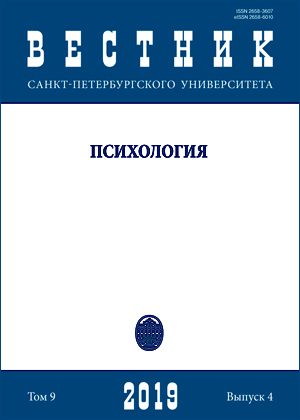“It is not that Adam is becoming smaller, but rather the tree is growing:” methodological notes on the transforming personality in a changing world (based on a peer-review)
DOI:
https://doi.org/10.21638/spbu16.2019.402Abstract
The concept of the “Transforming personality in times of change (Mobilis in Mobili)” and Alexandr Asmolov’s introduction to the project of collective monography with the same title “Mobilis in Mobili: Personality in Times of Changes” represent a new vision of personality psychology including its new methodology and model in new discourse. Do we really mean that “In the middle of the bridge one need not think where to proceed”? This article is not a thing of itself, but an element of a protracted dialogue and is a double response. This essay reflects on methodological issues which originated from a peer review article designed in this new paradigm. But the real reason was the startling impression from Asmolov’s approach to the “uncertainty, complexity and diversity of a strikingly evolving world.” This approach transcends the realistic view of those qualities as the objective properties of modernity and introduces them as the challenges to designing researchers’ basic instrument of cognition — their minds — to make them prepared for the rapidly emerging future. The scope of my methodological contemplations includes reasoning about “trans-floorism” as a characteristic of the elevator and why it doesn’t help us to understand the process of its movement; why cutting notches in a tree is not the best method to measure Adam’s growth and where the Alice lost the meaning of her conversation with the Duсhess.
Keywords:
methodological issues, essay, contemplations, methodology of doubt, transforming personality in times of changes, Mobilis in Mobili, uncertainty, complexity, diversity, identity, life context, Self, Actor, Agent, Author
Downloads
References
References
Downloads
Published
How to Cite
Issue
Section
License
Articles of "Vestnik of Saint Petersburg University. Psychology" are open access distributed under the terms of the License Agreement with Saint Petersburg State University, which permits to the authors unrestricted distribution and self-archiving free of charge.




